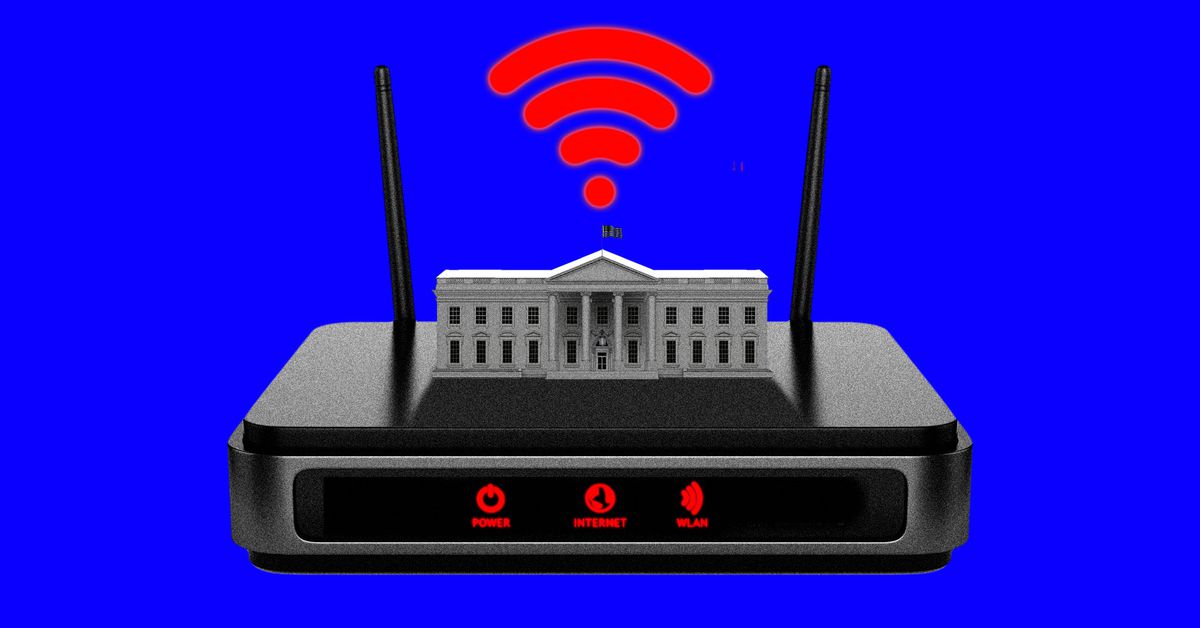Fuck Ajit Pai.
With a broad sword, preferably.
I vote for the shards of that giant Reese’s mug
Make that sword rusty and covered in piss, and I’m happy.
Giant Mug - last week tonight with John Oliver
Ashit Pie has such a punchable face.
Here is an alternative Piped link(s):
Giant Mug - last week tonight with John Oliver
Piped is a privacy-respecting open-source alternative frontend to YouTube.
I’m open-source; check me out at GitHub.
This is great, but we also need a law that mandates leasing of existing last mile, to bring a competition like we had during the days of DSL.
Ideally the fiber from POP to my house should be owned by my city and leased to whichever ISP I want to do business with.
Or you separate the infra from the provider. So all fiber is put into company A and the service offering is done by companies that buy capacity on the lines.
Regulate the shit out of the infra company and let the service offering co pa iets compete. You will see datacaps disappear and prices drop in no time.
This is a rational, interesting, and seemingly sustainable model to use for internet infrastructure companies, and unfortunately, that’s why I’m confident it won’t succeed. Comcast et al would lobby their balls off against any legislation of that nature.
Just like the return of net neutrality, abolishing of non-compete clauses in labor contracts, and a long list of other improvement made under Biden.
What I mean to say, don’t be blind to all the hood things happening amidst the shit storm that is the current US political theatre.
Maybe even nationalize it? It’s a very important part of modern lives an communication. It is of national interest that it works, is affordable, and is efficient. Why would it not be nationalized?
At least you want to prevent roads being dug up by a range of companies installing duplicate infrastructure. Each house only needs 1 fiber (for data) to them… everything can come though that fiber… that also saves resources and allows for easier coordination and less ground works.
I dunno of nationalizing is needed, or if heavily regulating is enough. This is done with water system, high voltage and mid voltage power too… so the model is familiar.
At least separating the medium from the services and offering the medium under a FRAND model means that also the service providers will keep the medium provider honest and the service providers will compete with eachother for the customer. On quality, service, price and whatever they can think of.
And I fully realise the whole US does not nessecarily mean 1 infra owner… maybe split across regions/states is better… that’s for lawmakers to figure out.
This would fix a boatload of issues and break down Verizon/Comcast into service vs infrastructure companies.
It will never happen.
Both companies would put forth a staggering amount of money into lobbying to kill this on top of all the politicians they already “donated” to.
It’s sickening.
What’s sickening is that it’s not a staggering amount of money. Around the SOPA bullshit someone made a list of telecom campaign contributions per congressman, and most were < $10k.
I’m going to hold my excitement in check until January of next year. Because if a certain former president gets reelected then any hopes of net neutrality will end for another 4 years.
Net Neutrality will probably be one of our lesser concerns if that happens.
On the contrary as it directly affects any sort of digital escapism
That’s one of the reasons I’m hoarding now.
another 4 years
And probably longer than that, if things go the way Trump plans
deleted by creator
As long as their internet can accept incoming connections 🤷. Something something end of available IPv4 addresses and years of putting customers behind layers of NAT.
What makes a man turn neutral? A lust for gold? Power? Or were you just born with a heart full of neutrality?
My gut tells me “maybe”
This is the best summary I could come up with:
The Federal Communications Commission is set to vote to restore net neutrality on Thursday in the latest volley of a yearslong game of political ping-pong.
The commission is expected to reclassify internet service providers (ISPs) — e.g., broadband companies like AT&T and Comcast — as common carriers under Title II of the Communications Act.
The vote comes just a day after Biden signed a law to force TikTok to separate from its China-based parent company or face a ban and on the heels of a new comprehensive data privacy proposal backed by two powerful sponsors.
The pandemic and current political tensions about foreign adversaries have also tinged how the FCC talks about net neutrality: the agency is focusing on how the rules could give it insight into internet outages, as well as authority over national security issues with broadband equipment.
“The FCC, realizing that it has lost the argument about blocking or throttling, no anticompetitive paid prioritization, has been grasping for new justifications, like saying it is now cybersecurity that drives our interest in imposing these ancient laws monitoring the internet,” said Jonathan Spalter, president and CEO of broadband industry group USTelecom.
“And regulating an industry which is on the cusp of working with our government and the states to bring internet everywhere finally could really jeopardize that critical and bipartisan goal by creating regulatory overhang, disincentivizing investment.”
The original article contains 1,157 words, the summary contains 228 words. Saved 80%. I’m a bot and I’m open source!
“And regulating an industry which is on the cusp of working with our government and the states to bring internet everywhere finally could really jeopardize that critical and bipartisan goal by creating regulatory overhang, disincentivizing investment.” said Jonathan Spalter, president and CEO of broadband industry group USTelecom.
WTF bullshit is he spouting? Hate to break it to ya bud, the internet was conceived and executed…by the government. Or did you forget DARPA? On the cusp,ppphht.
And the rest of that word salad? Regulatory overhang? Disincentivizing? It’s all doublespeak for “padding shareholders pockets”.
Don’t call it a comeback, it’s been here for years
Connecting all peers, putting Comcast in fear
Makin the tiers blow off like a typhoon
Now watch how the bandwidth blooms
Transmissions, not expiring
All the competition, it’s inspiring
Mom & pops, online shops
The benefit of equal access rocks











